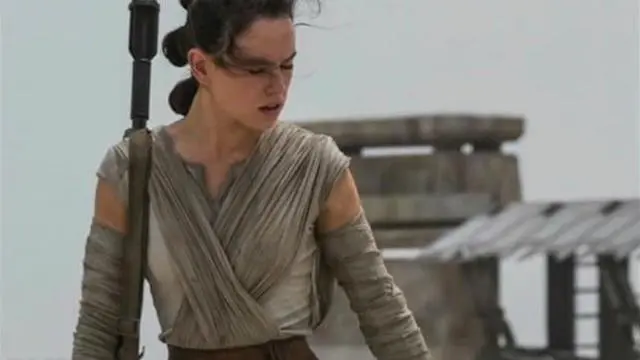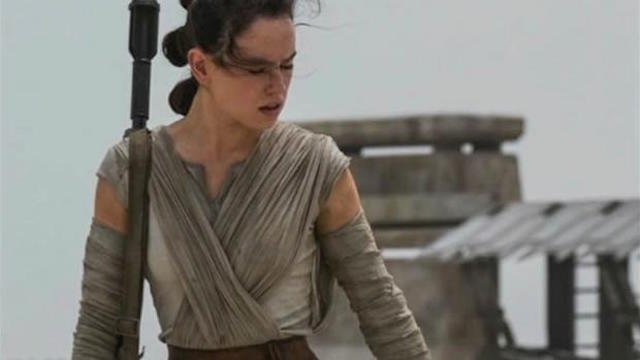With the debut of Star Wars: The Force Awakens on DVD and Blu-Ray, I’ve been thinking back a lot to earlier this year, when Rey was left out of so much of the film’s merchandise. It made me angry to see the main character of the film excluded from the toy aisle just because she was a woman, but that was only the tip of the iceberg. Considering what that choice to exclude Rey said about the manufacturers’ attitudes, and the message that exclusion sent to kids of all genders, it became even more disturbing.
At the time, Sweatpants and Coffee published an interview in which an anonymous “industry insider” revealed that the reasoning behind leaving Rey out of a lot of merchandise was that “no boy wants to be given a product with a female character on it.” This meant that, despite J.J. Abrams’ words, Star Wars was still being perceived as a “boy thing.” Boys were the target market for the toys; what girls might want wasn’t taken into consideration. Judging from the anonymous source’s comments, this decision was deliberate, rather than the result of an unconscious bias, which makes it even worse.
These exclusions occur frequently across various franchises, and they send the same, toxic message. Leaving Rey out—or Black Widow, or Gamora—tells boys that women aren’t worth identifying with. That women may be heroes onscreen, but when it comes to re-enacting the movies with your action figures, it’s the men who should be saving the day. This was perfectly (and painfully) illustrated when Black Widow was replaced by Captain America in the Age of Ultron jet-motorcycle toy. Black Widow is the one pulling this cool stunt in the film, but kids looking to recreate that scene are given Cap instead. Something similar happened with Rey; the “Battle Action Millennium Falcon” playset only includes male characters, even though Rey was the one who actually piloted the ship off Jakku. So while these films show women being strong, capable, and competent, their feats are all but erased in the toy aisle—as if the male characters are the ones who really deserve the admiration and credit.
These toys tell boys that the guys are the real heroes. The women? Forget about them; they’re not worth remembering or celebrating. And if that’s the message kids are being sent through the toys we make available to them, what will it make them think about actual girls and women? That their accomplishments should be ignored, that men are always going to be stronger and better than them, that men are more worthy of being praised and looked up to? Besides being an awful message to give girls, who will look around the toy aisle and see a glaring lack of the characters who look like them, it’s a terrible thing to tell boys. Objectification, dismissal, dehumanization—when we make it clear that boys shouldn’t care about a film’s female characters, we’re telling them that these things are valid, even correct, responses to actual women.
Male dolls are marketed to girls, girls are given books with boy protagonists, and many family films with male leads are considered gender-neutral. Girls learn, from an early age, to empathize and identify with both men and women. But media with female leads and products featuring female characters get dismissed as “girl stuff”, and boys are discouraged—very actively, sometimes—from engaging with it, which ends up hurting everyone. It would be nice if toymakers could take one small step toward combatting this trend—toward helping show boys that women are not fundamentally different from or inferior to them, but are capable and human, too—by including female characters more consistently alongside their male companions.
As a middle schooler, Tabitha started a Star Wars club with her siblings and once sent a hand-drawn birthday card to George Lucas. Although she has matured to thinking about representation in the films, she still enjoys a good game of Star Wars Trivial Pursuit. She can be found on Tumblr talking about books, writing, feminism, and asexual representation.
—The Mary Sue has a strict comment policy that forbids, but is not limited to, personal insults toward anyone, hate speech, and trolling.—
Follow The Mary Sue on Twitter, Facebook, Tumblr, Pinterest, & Google+.










Published: Apr 5, 2016 04:01 pm